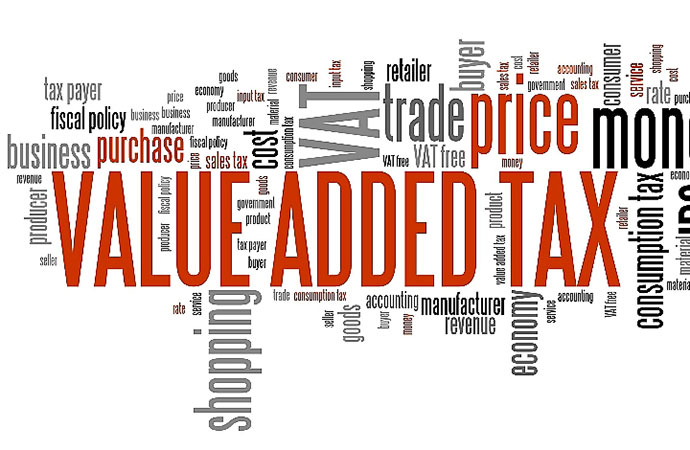Featured 1

Image: Collected
The sudden move to hike VAT (value-added tax), or supplementary duty (SD) on around 100 goods and services at a time of high inflation, comes as a jolt to consumers. Certainly in the short term. But adopting a long term view, given the persistently low tax-GDP ratio that Bangladesh continues to suffer from, it can be just the move this economy has been waiting for, as a way to get around our issues with TIN-based taxation.
VAT, a tax on consumption, is already the biggest source of revenue for the government, accounting for 40% of receipts in 2023-24. Bangladesh seems to struggle to raise revenue to fund its development, even more than comparable countries in the same income bracket. Bangladeshis are highly averse towards taxes. In the financial year 2022, only 1.4% of people filed tax returns. The number is 5.8% in neighbouring India. Recently, under-invoicing by importers to avoid tariffs has been gaining traction while firms evading corporate taxes is almost an open secret. All this has resulted in an extremely low tax-to-GDP ratio of around 7.5%-9%, the lowest in South Asia and, on average, almost 5% less than lower-middle income countries, according to the International Growth Centre.
For a good 50 years now, the IMF has been a key advocate of governments using VAT to raise internal revenue, advising member countries on how to design and implement the VAT. That is why it recently undertook a major study to answer key questions about the usefulness of the tax-which has been surprisingly little studied-and to crystallize best practices. The findings were encouraging, indicating that the spread of the VAT appears to have been broadly desirable. But they also underscored that the success of a VAT cannot be taken for granted: it requires good design and implementation, not only when first adopted but also for many years after.
The NBR in a press release accompanying the latest gazette notification said, "The goods and services on which VAT, supplementary duty, and excise duty are being increased do not include daily necessities, so the prices of consumer goods of the general public will not increase and there will be no impact on inflation." Besides, in the last 4 months, or since the interim government took over, the NBR has often reduced the VAT or exempted certain items like rice, potatoes, onions, sugar, eggs, dates, edible oil, and pesticides, showing sensitivity and a hand on the people's pulse.
The latest hikes by NBR of these indirect taxes come at a time when overall revenue collection fell 2.62 percent in the July-November period, increasing pressure on the government to borrow more from domestic and foreign sources. By working closely with the executive branch and the excellent governor it managed to recruit in Ahsan H. Mansur, I'm sure they can help us bear with whatever they may throw at us in the days ahead.

























Leave a Comment
Recent Posts
Auspicious beginnings, but a l ...
The newly elected government of Bangladesh is now in office, and the e ...
Caught between tigers and pira ...
Over 10,000 fishermen in the Sundarbans have suspended their fishing a ...
Historic Chawk Bazar comes alive with iftar items on ..
Shaping Young Conservationists: School Conservation ..
Iran has said it has reached an understanding with t ..
New Finance Minister Amir Khosru Mahmud Chowdhury